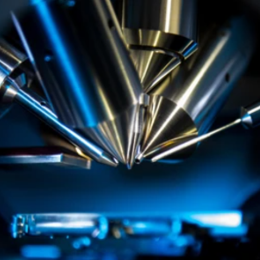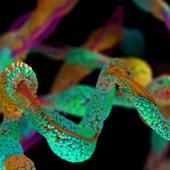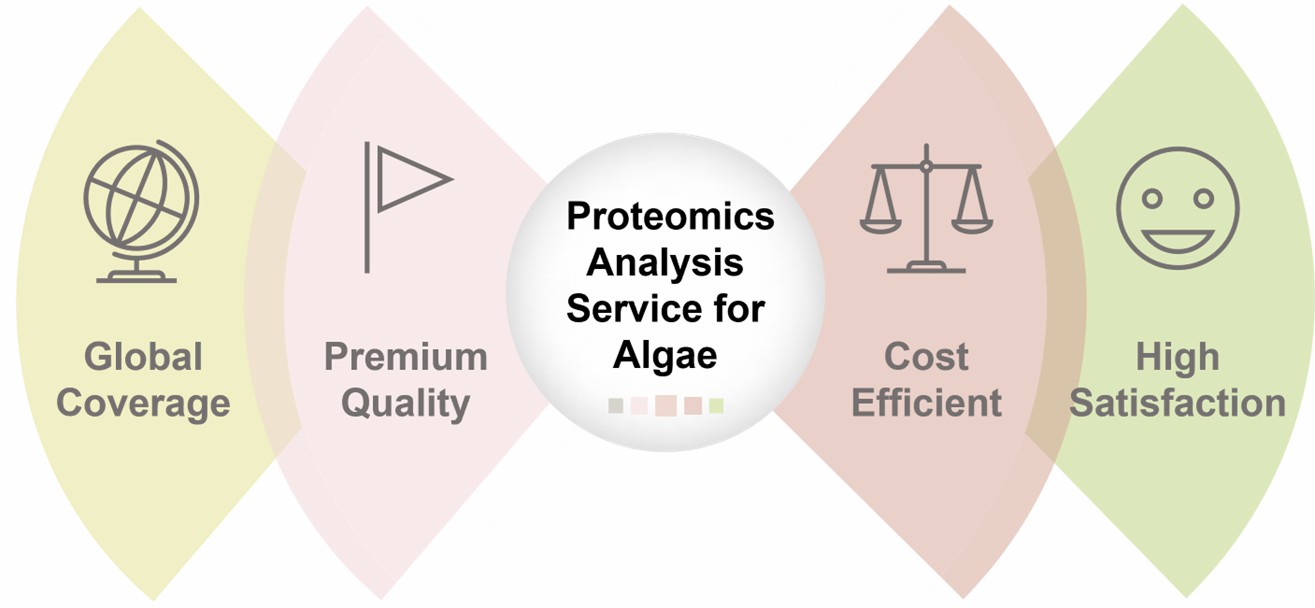Proteomics Analysis Service for Algae
Proteins are important components of living organisms and have many functions. Proteomics is a large-scale study of proteins through direct measurement of protein quantities.
As a professional and experienced CRO company, Lifeasible has the specialized equipment and expert teams to support large-scale proteomics analysis services for algae.
Introduction to Proteomics
A proteome is the total number of proteins produced or altered by an organism or system. Proteomics is able to identify dynamically changing proteins. The main idea of proteomics is to analyze post-translational modifications and to identify different levels of proteins and their location in different types of cells and tissues. Proteomics generally refers to the large-scale experimental analysis of proteins and proteomes, while often referring specifically to protein purification and mass spectrometry.
Combination of Genomes and Transcriptomes by Proteomics
Since proteomics can be used to analyze protein expression and protein interactions, it can be further combined with genomics and transcriptomics. Genomics gives the genomic sequence of a specific microorganism, which includes both coding and regulatory sequences. The messenger RNA (mRNA) in transcriptomes is also relevant to genomics and proteomics because transcripts provide information about gene expression, alternate splicing, RNA editing, polyadenylation sites, and so on.
Purpose of Proteomics Analysis
By analyzing the proteome, the understanding of the metabolic pathways of algae can be increased. Comparative proteomics analyses are performed under different environmental conditions. Differences in protein expression are mainly caused by different environmental stimuli. The analysis of differentially expressed proteins, together with their metabolic pathways, can be analyzed by proteomics analysis.
Proteomics of Algae
The genomics and transcriptomics of various algae have been deciphered, but the information on proteomics in algae is not well developed. Studies on algal proteomes have focused on Chlamydomonas reinhardtii and cyanobacteria such as Synechocystis PCC 6803 as model organisms. The main scope of the study includes the protective mechanisms of algal resistance to stress and the metabolism of lipids or other nutrients in algae.
Our Services
As the carrier of life activities, proteins play an important role in algae. As a pioneer in algae research and development, Lifeasible provides professional proteomics analysis services to our customers worldwide. We have specific types of tools for large-scale proteomics experiments.

Mass Spectrometry
First, the protein sample needs to be broken down using a specific enzyme, such as a sequential protease. Then the proteins are analyzed using a mass spectrometry, and many proteins can be identified in a single experiment.

Array-Based Proteomics
Array-based proteomics analysis is mainly related to cDNA microarrays and oligonucleotide microarrays, which can be used to identify a large number of proteins or multi-protein complexes.

The Structure and Imaging of Proteins
Proteomic analysis involves the structure and imaging of individual proteins, or large-scale experiments on multiple subunits of proteins, such as their three-dimensional shape, localization, metabolic and physiological parameters.
Why Choose Us

Lifeasible has been focusing on protein purification and mass spectrometry for many years and has accumulated a wealth of experience. Hence, we are capable to provide high-quality proteomics analysis services for algae for our clients with experienced scientists and professional equipment. Please contact us for more information.
Our services are for research use only and not for any clinical use.